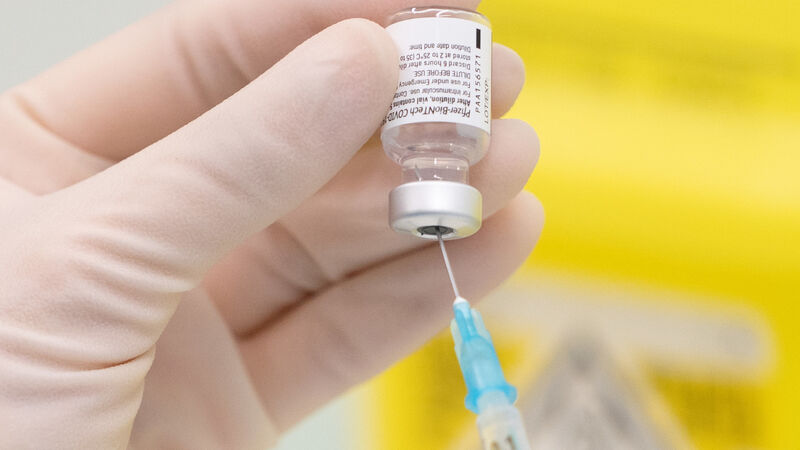Q&A: What you need to know about the Covid-19 vaccine

A medical staff member prepares a Pfizer-BioNTech Covid-19 vaccine at The Vaccination Hub at Croydon University Hospital, London, on the first day of the largest immunisation programme in the UK's history. Ireland is set to receive doses of the vaccine in January.
Ireland has agreements with five vaccine companies, including an agreement for the Pfizer/BioNTech vaccine which has been rolled out in the North. The agreement covers 2.3m doses of the vaccine, with each person needing two shots.










